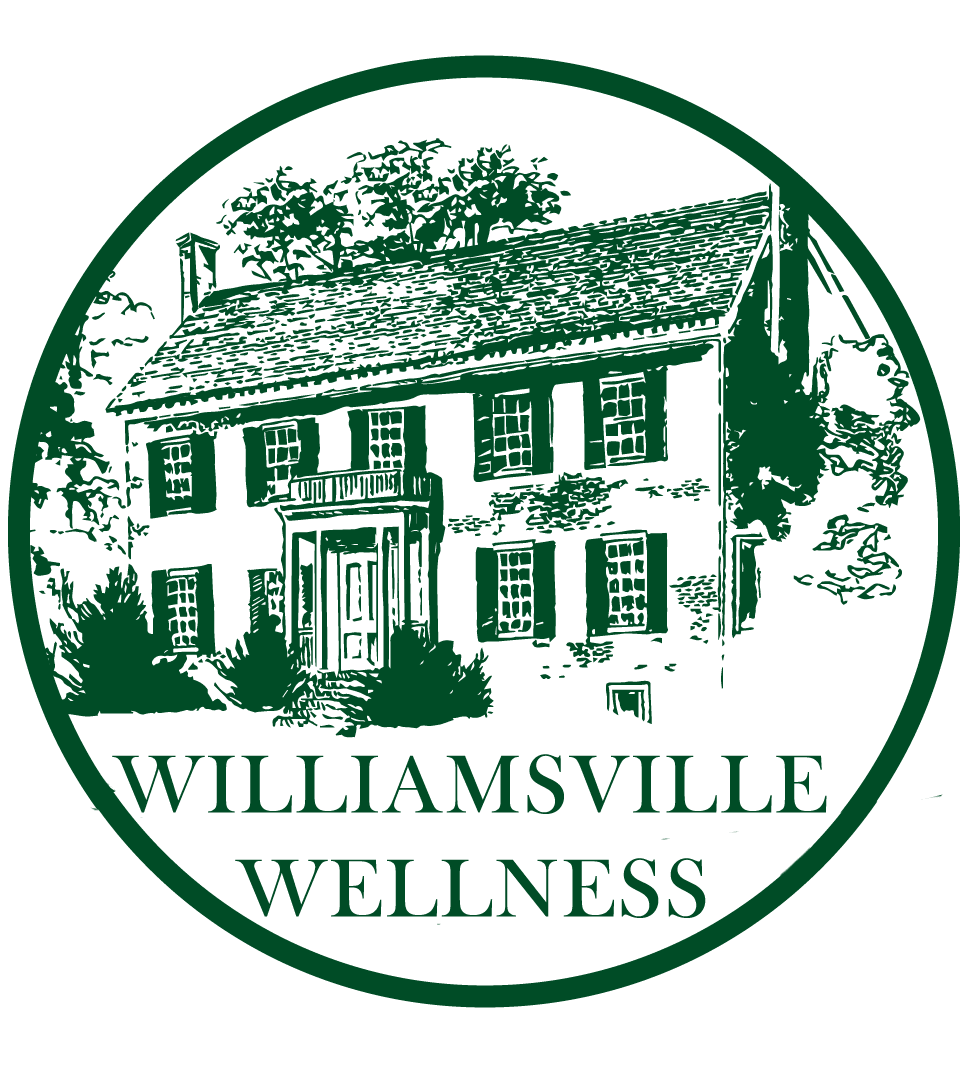Alcohol Addiction Treatment in Virginia
Comprehensive, evidence-based care for alcohol addiction recovery. Our compassionate approach addresses both the addiction and its underlying causes at our tranquil Virginia campus.
Start Your Recovery TodayAlcohol addiction affects millions of Americans and their families, creating a cycle of dependence that can be extremely difficult to break. At Williamsville Wellness, we understand the complex nature of alcohol use disorder and offer a comprehensive treatment approach that addresses both the physical dependency and the underlying psychological factors that contribute to addiction.
Understanding Alcohol Use Disorder
Alcohol Use Disorder (AUD) is a medical condition characterized by an impaired ability to stop or control alcohol use despite adverse social, occupational, or health consequences. It encompasses the conditions that some people refer to as alcohol abuse, alcohol dependence, alcohol addiction, and alcoholism.
AUD is considered a brain disorder and can be mild, moderate, or severe. Lasting changes in the brain caused by alcohol misuse perpetuate AUD and make individuals vulnerable to relapse. The good news is that no matter how severe the problem may seem, evidence-based treatment with behavioral therapies, mutual-support groups, and/or medications can help people with AUD achieve and maintain recovery.

Risk Factors for Developing Alcohol Addiction
Alcohol addiction doesn't develop overnight. Various factors can contribute to the risk of developing Alcohol Use Disorder:
- Genetic predisposition: Having a family history of alcohol or other substance use disorders increases the risk of developing AUD.
- Early age of first use: People who begin drinking at an early age are more likely to develop alcohol problems later in life.
- Mental health conditions: Conditions such as depression, anxiety, PTSD, and other mental health disorders can increase the risk of developing alcohol addiction.
- Social environment: Peer pressure, cultural attitudes toward drinking, and easy access to alcohol can all contribute to alcohol misuse.
- Stress: High levels of stress, particularly chronic stress, can increase the risk of turning to alcohol as a coping mechanism.
- Trauma: Experiencing trauma, especially during childhood, can significantly increase the risk of developing alcohol problems.
Recognizing the Signs of Alcohol Addiction
Identifying alcohol addiction in yourself or a loved one is the first step toward seeking help. Here are some common signs and symptoms to watch for:
Physical manifestations of alcohol addiction can include:
- Increased tolerance: Needing to drink more to achieve the same effect.
- Withdrawal symptoms: Experiencing nausea, sweating, shaking, irritability, or anxiety when not drinking.
- Appearance changes: Weight changes, broken capillaries on the face, or a yellowish tint to the skin or eyes.
- Sleep disturbances: Insomnia or excessive sleepiness.
- Digestive issues: Persistent stomach pain, nausea, or vomiting.
- Blackouts: Experiencing episodes where you cannot remember events that occurred while drinking.
Alcohol addiction often leads to noticeable behavioral changes:
- Drinking alone or secretly: Concealing alcohol consumption or drinking alone regularly.
- Neglecting responsibilities: Consistently missing work, school, or family obligations due to drinking or hangovers.
- Loss of interest: Abandoning activities or hobbies that were once enjoyed in favor of drinking.
- Risky behavior: Engaging in dangerous activities while intoxicated, such as driving or operating machinery.
- Failed attempts to quit: Making repeated unsuccessful efforts to cut down or stop drinking.
- Legal problems: DUIs, public intoxication, or other alcohol-related legal issues.
The psychological impact of alcohol addiction can be profound:
- Cravings: Experiencing a strong urge or need to drink.
- Irritability or mood swings: Becoming unusually anxious, irritable, or defensive, especially when alcohol isn't available.
- Depression or anxiety: Experiencing worsening mental health issues, which may be both a cause and effect of alcohol abuse.
- Rationalization: Making excuses for drinking or minimizing the amount consumed.
- Preoccupation: Spending a significant amount of time thinking about alcohol, planning to drink, or recovering from drinking.
- Guilt or shame: Feeling remorseful about drinking behaviors but continuing to drink anyway.
Alcohol addiction frequently damages relationships and social functioning:
- Relationship problems: Increasing conflicts with family members, friends, or colleagues related to drinking.
- Social isolation: Withdrawing from social activities or relationships that don't involve alcohol.
- Financial difficulties: Spending excessive amounts of money on alcohol despite financial problems.
- Work or academic issues: Declining performance at work or school due to drinking or hangovers.
- Changing social circles: Associating primarily with other heavy drinkers or isolating from non-drinkers.
- Concerned feedback: Friends or family expressing worry about drinking habits.
Alcohol Withdrawal Timeline: What to Expect
Understanding the alcohol withdrawal process is crucial for those considering treatment. Withdrawal symptoms can range from mild to severe and potentially life-threatening, which is why medical supervision during detox is essential.
6-12 Hours After Last Drink
Initial symptoms may include anxiety, restlessness, nausea, loss of appetite, insomnia, mild tremors, and sweating. Some people may experience headaches or irritability.
12-24 Hours After Last Drink
Symptoms may intensify to include disorientation, hand tremors, and seizures in some cases. This period marks the beginning of potential hallucinations and is when medical supervision becomes particularly important.
24-48 Hours After Last Drink
For some individuals, this period may involve heightened symptoms including increased blood pressure, body temperature, and heart rate. Confusion, irritability, and nightmares are common during this phase.
48-72 Hours After Last Drink
This is the most critical period when severe symptoms like delirium tremens (DTs) may occur. DTs can include severe confusion, fever, seizures, agitation, and hallucinations. This condition requires immediate medical attention.
72+ Hours After Last Drink
Most acute physical symptoms begin to improve after this point, though psychological symptoms like anxiety, depression, sleep disturbances, and fatigue may persist for weeks or months. This is known as post-acute withdrawal syndrome (PAWS).
Important: Alcohol withdrawal can be dangerous and potentially life-threatening, especially for those who have been drinking heavily for a prolonged period. Medical supervision during detox is strongly recommended to ensure safety and comfort during this critical phase of recovery. Williamsville Wellness is NOT a medical facility, and as such, detox must be completed elsewhere.
Frequently Asked Questions About Alcohol Addiction Treatment
Find answers to common questions about alcohol addiction treatment at Williamsville Wellness:
The duration of alcohol addiction treatment varies based on individual needs and circumstances. Our standard residential program is 28 days, but we offer flexible options:
- Residential treatment typically lasts 28 days but can be extended if needed
- Virtual Intensive Outpatient Program (IOP): 6-8 weeks with sessions 3-4 times per week
- Virtual Partial Hospitalization Program (PHP): 2-4 weeks with more intensive daily sessions
The length of treatment is determined by factors such as the severity of addiction, presence of co-occurring disorders, previous recovery attempts, and individual progress. We work with each client to develop a personalized treatment timeline that maximizes the chances of successful, long-term recovery.
For many individuals with alcohol addiction, medical detox is highly recommended due to the potential severity of withdrawal symptoms. Alcohol withdrawal can be dangerous and even life-threatening, particularly for those who have:
- Been drinking heavily for a long period
- Previously experienced severe withdrawal symptoms
- Co-occurring medical or mental health conditions
- A history of seizures or delirium tremens (DTs)
Williamsville Wellness is NOT a medical facility, and as such, detox must be completed elsewhere.
Most insurance plans provide some level of coverage for alcohol addiction treatment, though benefits vary by provider and specific plan. Williamsville Wellness works with many major insurance providers to maximize your benefits:
- We accept most major insurance plans including Sentara, Blue Cross Blue Shield, United Healthcare, and many others
- Our admissions team conducts a free insurance verification to determine your specific coverage before admission
- We offer transparent pricing and payment options for any out-of-pocket expenses
- Financial considerations should never prevent someone from seeking needed treatment
Contact our admissions team for a confidential insurance verification and to discuss payment options that can make treatment accessible and affordable.
Williamsville Wellness offers a truly distinctive approach to alcohol addiction treatment:
- 8-10 individual therapy sessions weekly: We provide significantly more one-on-one therapy than typical treatment centers, which often offer just 1-2 sessions per week.
- Small, intimate setting: With only 14 beds, we maintain a low client-to-staff ratio that ensures personalized care and attention.
- Peaceful 400-acre campus: Our serene Virginia countryside setting creates an ideal environment for healing and reflection.
- Comprehensive approach: We address both addiction and underlying mental health issues with evidence-based therapies.
- Experienced clinical team: Our therapists specialize in addiction treatment and co-occurring disorders.
- Comfortable accommodations: Private and semi-private rooms with chef-prepared meals create a home-like environment.
These distinctive features create a treatment experience focused on identifying and addressing the root causes of addiction rather than simply managing symptoms.
We offer flexible treatment options to accommodate various work and educational situations:
- Residential program: Our primary treatment option requires a full-time commitment away from work or school.
- Virtual Outpatient Programs: Our online treatment options offer flexibility for those who cannot take extended time away from responsibilities.
- FMLA and disability support: We provide documentation to support leave from work when needed.
- Evening and weekend programming: Virtual options include sessions scheduled outside traditional work hours.
Many clients find that taking time away from daily responsibilities to focus fully on recovery yields the best long-term results. However, we understand this isn't possible for everyone, which is why we offer various treatment options to meet different needs.

Long-Term Health Effects of Alcohol Abuse
Prolonged alcohol abuse can have devastating effects on nearly every system in the body. Understanding these risks can be a powerful motivator for seeking treatment:
- Liver Damage: Including fatty liver, alcoholic hepatitis, fibrosis, and cirrhosis.
- Cardiovascular Problems: High blood pressure, irregular heartbeat, weakened heart muscle, and increased risk of stroke.
- Digestive Issues: Inflammation of the pancreas (pancreatitis), stomach, and intestines, which can affect digestion and the absorption of nutrients.
- Immune System Weakening: Increased susceptibility to diseases like pneumonia and tuberculosis.
- Brain Damage: Impaired brain function, memory problems, and in severe cases, Wernicke-Korsakoff syndrome ("wet brain").
- Cancer Risk: Increased risk of cancers of the mouth, throat, esophagus, liver, colon, and breast.
- Bone Health: Decreased bone density leading to increased risk of fractures.
- Mental Health Issues: Worsening of conditions like depression, anxiety, and increased risk of suicide.
"J.T. was a sports star at a Division 1 college when his drinking first sabotaged him. When he lost his scholarship, he became a binge drinker and prone to blackouts. His estranged father, a recovering alcoholic, re-established ties with J.T. and connected him with Williamsville Wellness. They now go to AA meetings every Sunday and enjoy a strong bond."
Specialized Alcohol Addiction Treatment in Virginia
Serving Richmond and Beyond
Our alcohol addiction treatment center is located in Hanover, Virginia, just minutes from Richmond. We serve clients from throughout Virginia and surrounding states, offering a peaceful retreat for recovery.
Alcohol addiction affects individuals from all backgrounds, impacting relationships, careers, and health. If you or someone you love is struggling with alcohol dependency, effective treatment is available. Our comprehensive program addresses both the addiction and its underlying causes for lasting recovery.
Our Comprehensive Treatment Approach
Medical Stabilization
Partnering with medical detox facilities to ensure safe withdrawal
Psychological Assessment
Comprehensive evaluation to identify co-occurring disorders
Individual Therapy
8-10 weekly sessions focusing on underlying causes of addiction
Family Involvement
Healing relationships and building support systems
Evidence-Based Therapies for Alcohol Addiction
Cognitive Behavioral Therapy
Identifying and changing negative thought patterns that contribute to drinking behaviors
Motivational Enhancement
Strengthening motivation and commitment to recovery goals
Dialectical Behavior Therapy
Building skills in mindfulness, distress tolerance, and emotion regulation
Trauma-Focused Therapy
Addressing trauma that may contribute to alcohol use as a coping mechanism
Family Systems Therapy
Healing family dynamics and building healthy support systems
Holistic Approaches
Incorporating nutrition, fitness, mindfulness, and stress management techniques
Our approach to alcohol addiction treatment addresses the whole person — mind, body, and spirit. In addition to evidence-based therapies, clients benefit from our peaceful campus environment, nutritious chef-prepared meals, fitness facilities, and a supportive community of professionals dedicated to your recovery.
Virtual Treatment Options
For those unable to attend residential treatment or those transitioning from inpatient care, we offer virtual outpatient programs for alcohol addiction. These programs provide the flexibility to receive treatment while maintaining work, school, or family responsibilities.

Whether you choose our residential or virtual treatment options, Williamsville Wellness provides the comprehensive care needed to overcome active alcohol addiction and build a foundation for lasting recovery. Our focus on identifying and addressing the root causes of addiction, rather than just managing symptoms, leads to better long-term outcomes.
Begin Your Recovery Journey Today
Take the first step toward freedom from alcohol addiction with Williamsville Wellness. Our compassionate team is ready to help you reclaim your life.
Contact Us Now

